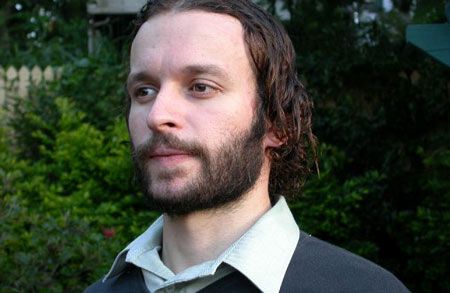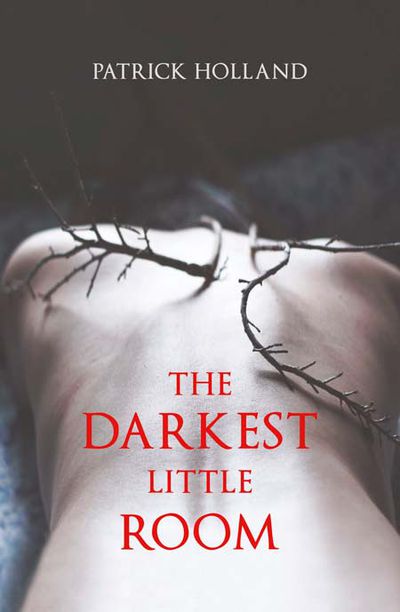Patrick Holland chats with Jessica Au about his new book,

Tell us about the genesis of this novel – how did
It’s always difficult to say exactly when and where a novel begins. There are always complex and, even for an author, mysterious causes. Certainly having spent so much time in Saigon over the last five years meant the city would become important to me and, like all my other significant experiences, it was inevitable too that I would try to make sense of it through fiction. Also, working with orphans and street kids opened my eyes to the sordid side of life in South East Asia.
We can see elements of the genre at work here – the troubled foreign journalist, the kidnapped girl, the horrifying twist. Yet there’s a contemplativenessthat also pulls against the makeup of a ‘typical’thriller. How did you approach the novel with regards to the wider tradition of the literary mystery?
I think of the novel in the tradition of Graham Greene’s literary thrillers, like The Honorary Consul, The Power and the Glory and The Quiet American. But also in the tradition of writerslike Hemingway, Kipling and Conrad, who I guess are more action-adventure than mystery. (Although Kipling does have a handful of wonderful mystery stories.)
I’ve always loved mystery, everybody does, but as a younger writer I was educated into believing there was something inferior about it. I must be honest and say that for me the majority of the Sherlock Holmes stories confirmed that. But then I picked up a volume of Chesterton’s stories, and after that Christie’s Murder on the Orient Express, and realised that really good writing that was also mystery writing was possible.It didn’t have to be founded on doubtful conceits, like a detective knowing that a certain man had just come from Brazil because the ash from his cigarette had the scent of a particular paper they use to wrap tobacco in that country.
There’s often an element of mystery in Greene’s work, as there is in mine, certainly in The Mary Smokes Boys and some of the stories in The Source of the Sound, but I never really write detective fiction. I think I’ve done it once, in a story called ‘The Lost Country’, which is in the aforementioned volume.
For me, straight detective fiction often falls into the trap of presenting the reader with a mental puzzle only, and so lacks those mysterious things that make a person love a book and want to read it again. Take Eco’s The Name of the Rose, I remember enjoying that immensely, but the thrill of the ‘whodunit’aside, there isn’t much there to love. There are plenty of things to ‘like’ – wise, parenthetical observations about literature and philosophy in the middle ages, for one, but little that hits you in the gut, nothing visceral.
A balance between a well-woven mystery or thriller plot and that vital, intangible, beautiful thing you might even call ‘truth’ is possible. Le Carre and Christie sometimes achieve it. Zachary Mason achieves it frequently in his recent The Lost Books of the Odyssey. Graham Greene achieves it almost every time his shoots for it. But then he’s a master.
Your last book,
Things just seep in.The writers I love were/are often, in some sense, adventurers, like Kipling, Greene and Hemingway, and also travel writers like Dalrymple and Chatwin, so I guess it was inevitable I would be drawn to writing about farther shores. It is certainly not important for every writer to travel. Many that I read and love didn’t: Tolstoy, Juliana Horatia Ewing, Emily Bronte. Yet, even though these three were largely stationary when they wrote their books, those books are still adventurous.
To be honest, I view those books about ‘everyday life’ and the writers who write them with a sense ofwonder and even bafflement. Because it’s something I just can’t do. True, I don’t read much of that sort of thing. Often I’ll pick up a book by such a writer and the blurb willread something akin to, ‘Jenny’s sister has moved back in with her, but will the arrival of a new baby and a job change bring them to breaking point?’ … and the thing will be 800 pages long, longer than my entire output through five books, in which I’m dealing with things like horse theft, drug addiction, murder, incest, religious faith, crises of doubt, abductions and knife fights … I seriously take my hat off to the writers of the everyday, and obviously, going by current sales phenomena, they’re a lot closer to the zeitgeist than I am. And I don’t mean to sound condescending – a writer like Cheever makes idle middle-class life as exciting and mysterious, even more so, than many a crime writer makes detective work.
But, like I say, I have to travel. To constantly be renewing the well-springs of my imagination, as it doesn’t function when I’m sedentary. It’s a sense of wonder about far off places, perhaps even a sense that that elusive home or heaven I have sought is just another train ride away, that keeps me going. As for the practice of doing it, I used to take lots of notes and then photos and try to write off those, but now I simply remember. Memory has flaws, but applied to story it’s less intrusive than breaking off for perfectly accurate descriptions.
Joseph often struggles with his desire to take action – to rescue Thuy for example– and the impossibility of this invasiveness for both of them. How true do you think this state is both for those trapped and perhaps as well for the character of the tourist?
It’s very true. If there’s one thing I’ve learnt it’s that some of the worst things are done with the best intentions. It is not uncommon, certainly in South-East Asia, to see crusading Westerners who have no language or understanding of the country they’re in, create a hell of a lot of trouble through their heroic sallies. I don’t mean to say Asia never needs the West’s help. We all of us need each other’s help. But when it’s time to help, ignorance and self-righteousness are about the worst things you can carry into the fray. And then, in Asia, despite authoritarian governments, things often change by small degrees.
Finally, tell us about the novels or writers that you’ve loved in the past.
I’ve mentioned Greene’s novels. Then there’s Kipling’s Kim. The Brothers Karamazov. But really there are so many. Barry Lopez is both a genius and a saint of a man and should be read by everyone who can afford a book or a library card.
But, I suppose, no one’s work has meant as much to me as Hemingway’s. I’m thinking of For Whom the Bell Tolls, The Old Man and the Sea, The Sun Also Rises … He has the power to put you in a time and place, so it’s like you lived it yourself, but also to produce those hard, flawless, transcendent pieces of prose you find now and again in McCarthy or Faulkner or Dante, that you read and think, ‘no one made that up; that has been true for eternity and only now someone has said it’.
Take this from The Old Man and the Sea: ‘There are many good fisherman, and some great ones, but there is only you.’
Phrases like that approach music in that, though they are contextualised in representational prose, they leap up toward abstraction. I hardly know how to explain what Hemingway meant by that statement, or from where it draws its power. But I know it has power. I hope – and I mean hope – to achieve something like that, maybe once or twice over the course of a book.
The Darkest Little Room



